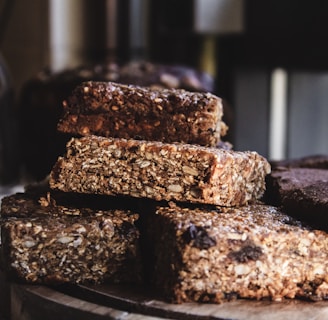Understanding Cocoa Types: A Comprehensive Guide for Bakers
10/6/20243 min read


Introduction to Cocoa Powder
Cocoa powder is often underestimated in the world of baking, frequently thought of as a mere commodity rather than a complex and versatile ingredient. However, a good quality cocoa powder can be a baker’s secret weapon, unlocking rich flavors and textures in various recipes. In this guide, we will explore the different types of cocoa, their unique characteristics, and how to select the right one for your culinary creations.
What is Cocoa Powder?
Cocoa powder is derived from cacao beans, which are roasted, hulled, and ground into a paste known as chocolate liquor. This paste is then pressed to separate cocoa butter, resulting in a fine cocoa powder. There are two primary types of cocoa powder: natural and Dutch-process.
Natural Cocoa Powder
Natural cocoa powder retains the acidity of the cacao bean and often features fruity notes and aromatic complexities. It is light in color and has a rich cocoa flavor that works well in baked goods. High-quality natural cocoa powder can elevate your recipes, dating back to before Dutch processing became popular.
Dutch-Process Cocoa Powder
In contrast, Dutch-process cocoa powder undergoes alkalization, a treatment that neutralizes its acidity. This method imparts a darker color and a mellower flavor, commonly associated with traditional chocolate taste. It tends to lack the fruity undertones of natural cocoa and is often preferred in recipes calling for baking powder.
Black Cocoa Powder
Black cocoa powder takes the alkalization process a step further, resulting in a dramatic black color and a distinct flavor profile. This type of cocoa is usually associated with products like Oreos and can provide a unique twist to desserts. While it offers a bold, chocolatey taste, it doesn’t always have the subtlety of natural cocoa.


Types Of Cocoa Powder
The Role of Cocoa Powder in Baking
Cocoa powder serves as a concentrated flavor source in baking, providing a chocolate taste without the additional fat from cocoa butter. This makes cocoa powder easier to handle than chocolate bars, as it won’t seize and adds little hassle in recipes requiring precise measurements.
Cocoa Powder Versatility
Cocoa powder can shine in various recipes, often outperforming chocolate itself. For instance, it can create lighter sponge cakes, chewy cookies, and tender meringues. Many bakers find that their best brownies come from using cocoa powder rather than melted chocolate.
Why Stock Different Types of Cocoa Powder?
Having multiple types of cocoa powder—natural, Dutch-process, and black—offers bakers flexibility. Different recipes demand specific types of cocoa due to their unique reactions with leavening agents. Natural cocoa pairs well with baking soda, while Dutch-process cocoa complements baking powder.
Choosing the Right Cocoa
Understanding when to use each type of cocoa powder can make or break a recipe. Here’s a quick guide:
Use Dutch-Process Cocoa When:
Your recipe calls for baking powder as a leavening agent.
Use Natural Cocoa When:
Your recipe relies solely on baking soda, or both baking soda and powder with soda being predominant.
Use Any Cocoa When:
No leavening agents are involved, such as in sauces, puddings, or brownies.
Experiment with Cocoa Powders
To truly understand the differences in cocoa powders, it’s beneficial to conduct taste tests. Begin by smelling the cocoa powders, as aroma can affect your perception of flavor. Then, make simple recipes—like hot cocoa, brownies, or chocolate frosting—with each type of cocoa to see how they perform and taste distinctively.
For example, when testing a classic chocolate cake recipe, you may find that Dutch cocoa produces a rich, smooth flavor, while natural cocoa leans toward a more fruity, vibrant taste. Black cocoa, meanwhile, can add a dramatic visual and flavor twist that can intrigue chocolate lovers.


Conclusion
Exploring cocoa powder is a rewarding journey that can enhance your baking repertoire. By experimenting with different types of cocoa, you will discover how each can contribute uniquely to your recipes. Whether you’re whipping up a batch of brownies or creating a luxurious chocolate mousse, the right cocoa can elevate flavors and textures, leading to impressive culinary results.
At Nyadeko, we offer a range of high-quality cocoa powders, including natural, Dutch-process, and specialty varieties like black cocoa. When choosing cocoa for your next baking venture, consider stocking your pantry with various types. This not only allows you to experiment but also ensures you’re well-prepared for any recipe that comes your way.
Call to Action
Are you ready to elevate your baking creations with the rich flavors of high-quality cocoa? Explore our range of cocoa powders at Nyadeko and start experimenting in the kitchen today!
